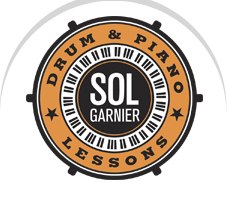Your cart is currently empty!
How to spice it up.
I always recommend to my students to explore the instrument they’re interested in. By that, in the simplest terms, I mean this: mess around. Every time I give this advice, though, I imagine the player on his drums pouring speed from his wrists while pouring sweat out of his forehead and producing an incredible mess of noise: no form, no functions, just pure chaos turned up to 11. Wow! Yes, because when they do that, in my mind, they are always looking for the “Wow!!!!” factor.
And that’s great, I’m not retracting my recommendation. Please, do mess around and do it without shame and do it with everything you’ve got.
But there is another way to mess around, a more organized way, perhaps a more civilized way.
Let’s suppose you are doing that mind numbing routine every morning when you come to the piano or the drums. Let’s suppose that you’re so accustomed to it that you watch TV while you wait for your muscle to develop some kind of memory. Let’s suppose now, that you TV breaks down. What happens then? No more routine? Now, hold the press, you have to do your routine. But all of the sudden, it’s so incredibly boring.
Maybe.
Let’s take the exercise one does to develop the roll (drum language) or the trill (same as a roll, but we’re now in piano lingo). It couldn’t be any simpler, the code is binary only. RLRL for the drummers, ding-gue-ling-gue-ling for the pianists. You get my meaning.
TV is off. Good. Brain is on.
Take that RLRL and start moving it on the kit. Put a method to it, create some combinations. For the piano, change the dynamic, soft, then loud, then medium, move it an octave, change the key. Also, you go on Zen mode. I love the Zen mode. It’s hypnotic. You-go-…..—sssssslow. Play one note every second. Then one note every 2 second, then every three. Your mind will wonder at first. Then it’ll get glued, fixated, obsessed with the next note, to make it exactly the same as the one before, or a little little bit louder, or a little little bit softer. It’s pure torture, you’re forced to look at your playing with a powerful microscope, and, because of that, you see all the small imperfections, the tiny impurities. And you are never satisfied. It’s maddening. It’s delicious.
What else could you do? Well, I am a drum and piano teacher. I can help you find a million game to improve your playing. I do wonderful lessons on Skype. But, hey, if you got only this blog to guide you, it should give you the gist of it, the trick is this: use your imagination.

